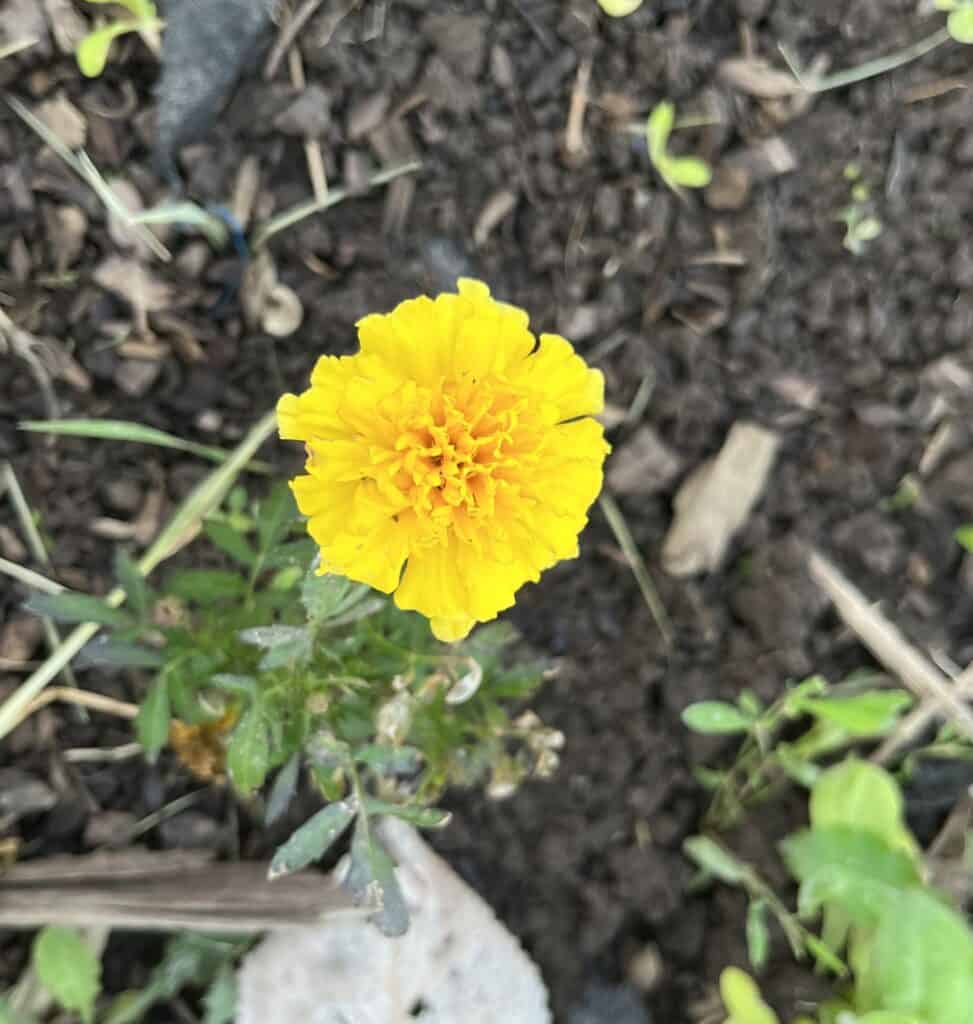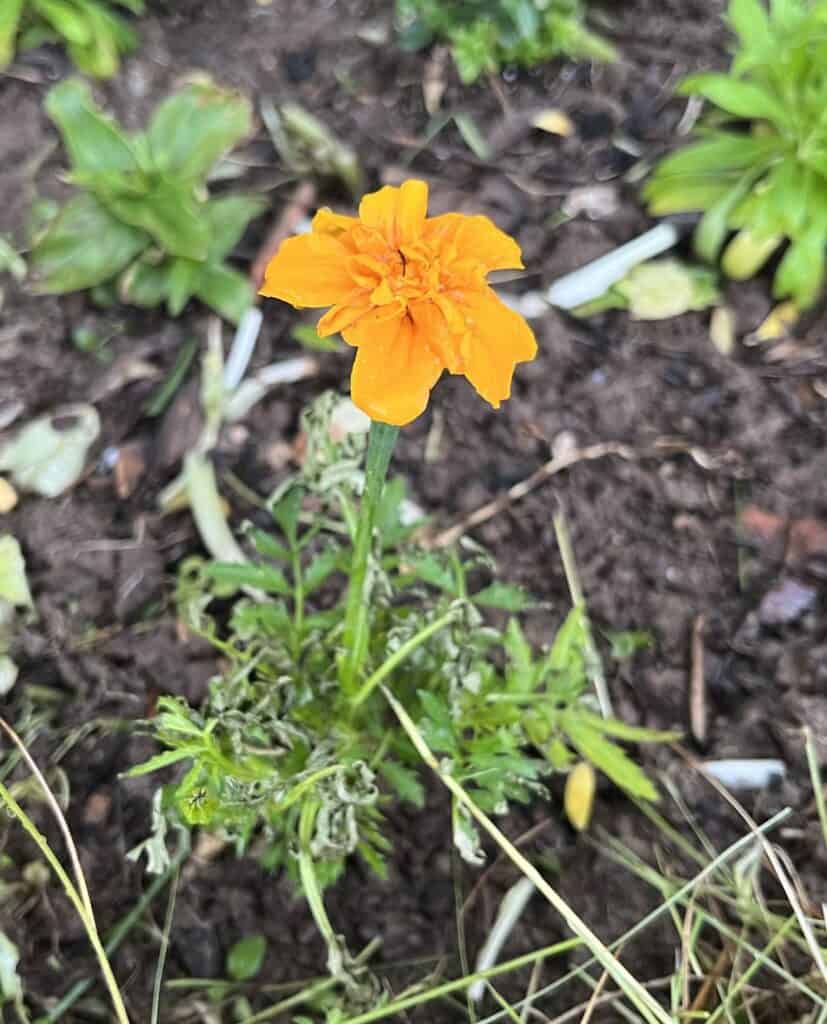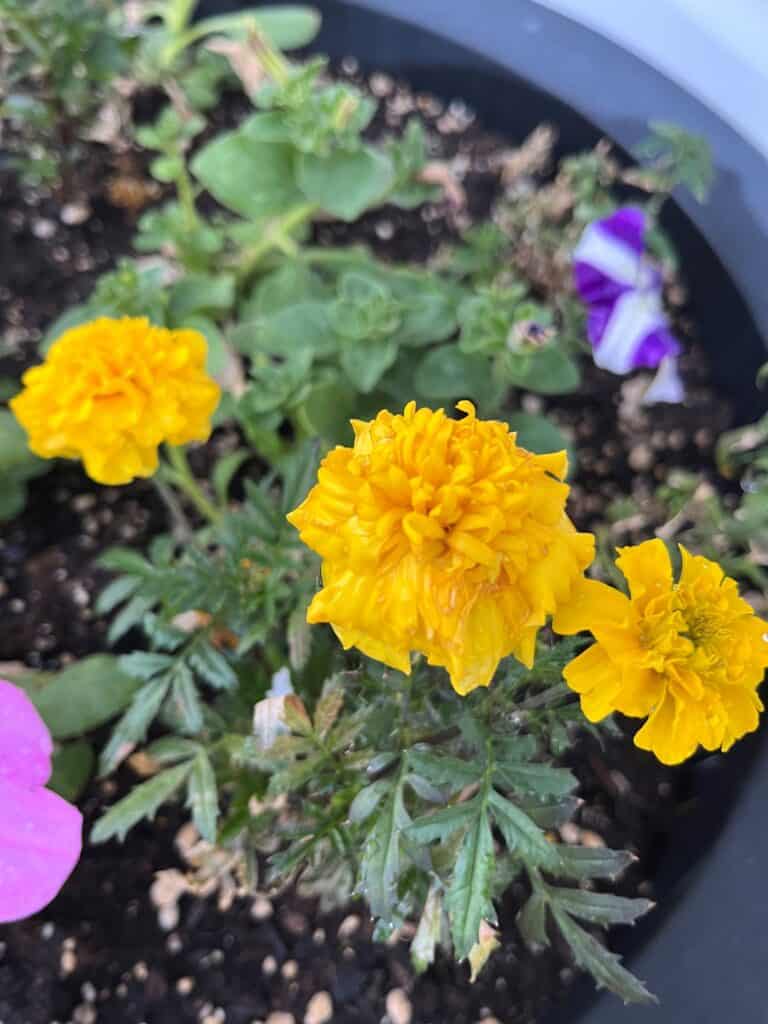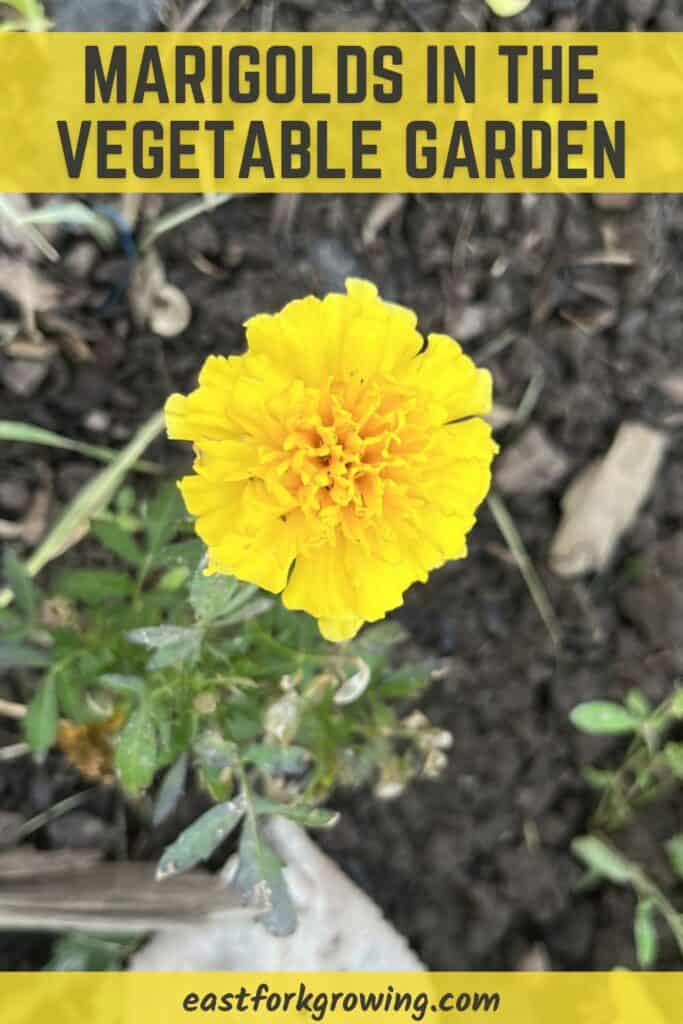Marigolds in the Vegetable Garden: The Best Companion
Planting marigolds in the vegetable garden is a great way to add beauty, repel pests, and attract pollinators. Marigold flowers are also edible! There are so many reasons why you should plant these flowers all around your vegetable garden today.

I’ve been gardening for 20+ years and I always include some marigolds in the vegetable garden. Marigolds are the favorite flower of many vegetable gardeners for good reason. The benefits these flowers offer, and their beauty add joy and help your vegetables grow.
Best Marigolds for Vegetable Gardens
The best type of marigold for vegetable gardens is the French marigold (tagetes patula). French marigolds are smaller than African marigolds and are easier to grow around your vegetable plants. These beautiful French marigolds come in a range of different colors from yellow, to orange, to maroon.
Pot Marigolds
Pot marigolds are not marigolds at all! The common name pot marigold is associated with Calendula officinalis or calendula. Pot marigolds aren’t the same species are true marigolds. While calendula flowers and plants have their own benefits and deserve to be grown in your vegetable garden, don’t get confused by their common name.
Reasons to Plant Marigolds in the Vegetable Garden
There are so many reasons to plant marigolds in your garden. Besides the obvious beauty they provide, they provide unique benefits that other flowers don’t. Here are some of the benefits of marigolds in your garden:

Marigolds are Beautiful
While vegetable gardens are all about food production, it’s also nice to create beauty in your garden space. Marigolds have vibrant flowers that are sure to catch your eye and add joy to your heart. There are many different marigold varieties that offer numerous colors and flower shapes. The marigolds in my garden always bring joy when I’m out in the garden weeding or harvesting. What’s not to love about adding joy?
Attract Pollinators and Beneficial Insects
It’s always a good idea to plant flowers in your vegetable garden to attract pollinators. One of the best benefits of planting marigolds is attracting pollinators to your garden beds! Pollination is vital to a successful crop. By providing food for pollinators in your garden, you are giving back to these important insects that help our vegetables and fruits grow.
Marigolds also attract predatory insects like ladybugs and parasitic wasps that feed on harmful pests.
Deter Insect Pests
Insects like mosquitos, harmful nematodes, spider mites, cabbage moths, and cabbage worms do not like marigolds! Pest control is a big reason why marigolds are a great addition to your vegetable garden. You can decrease the number of garden pests by spacing marigolds throughout your garden area.
Companion Plants
Marigolds are great companion plants and will add some color and function to your companion planting design. I have always planted marigolds in and around my plants and I’ve never found a vegetable that didn’t thrive next to a marigold. Tomato plants especially benefit from marigolds planted nearby.
- cucumbers
- melons
- eggplants
- squash
- potatoes
- lettuce
- pumpkins
- tomatoes
- asparagus
- beans
- onions

Where to Plant Marigolds in the Garden
Whether you have an in-ground garden, a raised bed garden, or a container garden, adding in some marigolds will help your plants thrive. Just make sure they have full sun. Marigolds need plenty of sunlight to thrive.
I like to plant marigolds intermingled with my vegetable crops for maximum benefit. Excellent companion plants need to be next to the benefiting vegetable plants for best results.
If you like things more tidy, you can plant an entire row of marigolds between your rows of vegetables, add a few plants to the perimeter of your container, or plant marigolds on your garden borders. All these methods will provide the benefits and beauty of marigolds in your garden.
Where to Buy Marigolds
Most garden centers sell marigold plants in their flower section in the early spring. If you want to grow a large quantity of marigolds in your vegetable garden you may want to plant them from seed.
Marigold seeds are pretty easy to find at any local garden center, but I have had good luck with these bulk seeds.
Growing Marigolds from Seed
You can grow marigolds from seed indoors before planting them outside in your vegetable patch after your last frost date in the late spring. Marigolds are easy to grow from seeds and are an excellent plant to direct sow in your garden beds.

How to Keep your Marigolds Blooming all Summer
Marigolds are low-maintenance flowers. If you are providing adequate water (about 1 inch per week) and keeping the weeds down, your marigolds will bloom all summer.
You can encourage new blooms by removing spent flowers (also called deadheading). Removing these old blossoms before they form seeds encourages the plant to make new flowers.

Pin for Later

East Fork Growing LLC is a participant in the Amazon Services LLC Associates Program, and the NutriMill affiliate program. These affiliate advertising programs are designed to provide a means for us to earn fees by linking to Amazon.com, NutriMill.com and affiliated sites. These products do not cost anymore to you, but we earn a small commission if you use our links. Thanks for your support!




